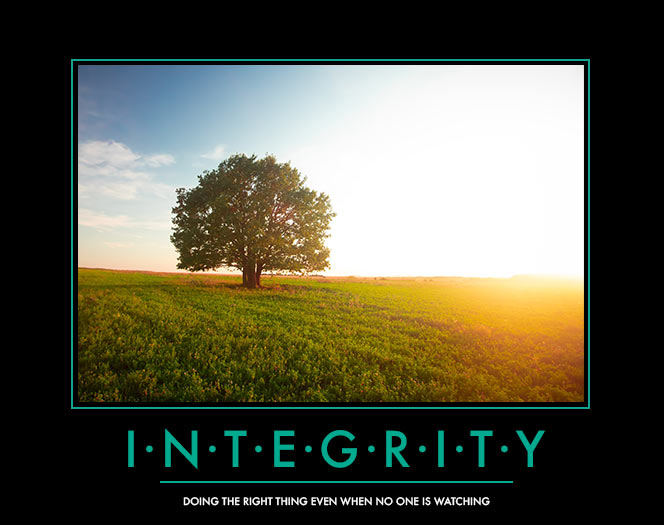
The Spark: When others batten down hatches, hoist up the sails
For G4 Kegs, the spark was becoming a new kind of industry leader — one that prioritized meaningful partnerships in a time when the brewing industry was aflame.

Dear Kinesis,
We recently hired an HR Director, but they’re not performing. I wanted this person to become a champion for our people, but we’re still facing massive employee churn and recruitment challenges. What am I doing wrong? How can I help this person to be successful?
Sincerely,
Distressed
Dear Kinesis,
I just made a major investment in a new dynamite salesperson – but now they’re asking for additional resources (a team, marketing materials) on top of their already hefty salary. How can I maximize their effectiveness without pouring more money down the drain?
Sincerely,
Frustrated
Dear Kinesis,
I brought someone new onto my team and saddled them alone with all my hopes and dreams for their department… and now I’m flabbergasted as to why they aren’t measuring up to my completely irrational expectations. Where can I purchase a magic wand to make these problems go away?
Sincerely,
Confused
For starters, kudos to you on recognizing the need for additional support on your team. Adding a brand-new position to your roster is a major (and often difficult) leap. It means your business is growing, your needs are changing, and you’re proactively responding by thinking ahead to the future. This is good news!
But if the frustrations above feel near-and-dear to your heart, it means you’re likely going about this all the wrong way.
Sure, we could respond to these messages individually. If we did, we would say things like:
“Dear Distressed,
One major issue we see with many HR positions is that they are based in compliance and rules, not relationship development. But on the other hand, HR can’t just be a complaint network, or someone employees go to when they’re afraid of the boss.”
Or…
“Dear Frustrated,
A very large percentage of Kinesis leads come from salespeople, hoping to add marketing as one more arrow in their quiver with or without owner involvement. This is often because there is a fundamental disconnect in the owner-salesperson dynamic.”
We could address these symptoms one-by-one, of course. But we’d prefer to identify their root cause:
Naturally, there is such a thing as a bad apple – and if you have one, they don’t belong on your team. Full stop.
But if you’re like most of our clients facing these types of challenges, the issue is usually not the person themselves – but that the person hasn’t been set up for success to begin with. Even the best employees can’t thrive without the right environment, support, and resources at their disposal. Consider whether there is anything you could be doing differently to set them up for success.

We’re joking… mostly. But a Google search for company values with the word “integrity” in them yields about 270 million results. The word is present in the corporate value statements of most major brands across a variety of industries – among them American Express, Coca Cola, Progressive Insurance, and (notably) Enron. There isn’t anything inherently wrong with the word integrity – but it doesn’t do much to drive behavioral change, or tell the story of who you are as a business.
If you’re finding HR to be a challenge, it may be because the department is called Human Resources and you’re focusing on the resources over the humans. At the end of the day, we’re all just people – which means we need a purpose in order to feel connected and engaged with our work, and a culture to build trust with the people around us. Stale corporate values like “integrity” or mission statements that read like a VCR manual do not a culture make.
And as we all know, building a culture of trust matters. A recent HBR study found that trust is the single most important indicator of an engaged company culture – with high-trust companies reporting up to 50% higher productivity compared to their lower-trust peers. If you own a 30-person, service-based business (where each employee could account for $100k+ in billable work), that could mean up to $3mm in annual revenue lost as a result of a lack of trust.
The numbers start to add up quickly – so if you want a successful HR department, start by giving them the tools to create a culture worth joining and staying.

If you or your sales team find yourselves stumbling when trying to sell your product, this presents another kind of challenge. The issue is multifaceted: You may actually have something remarkable on your hands, but struggle to communicate that remarkability to the world. That part’s easy.
But a far more likely problem is a lack of remarkability to begin with. Perhaps you once built something the market had never seen before, but now your competition has caught up. Sure, you have great people and deliver an awesome product – but couldn’t most of your competitors say that too?
If you're seeing yourself investing more and more on sales and not seeing a return, sales isn't the problem. The solution here isn’t just to change your elevator pitch, but your entire way of thinking and working.
If, as an operating principle, you refuse to bring mediocre or undifferentiated products and offerings to market, but instead focus on creating remarkable ones, your sales team will be able to sell it on the back of a napkin – without lobbying you for more marketing dollars.
The examples here are endless: Tesla recently raised $10.5 billion on the promise of the cybertruck without spending a single advertising dollar. You may gripe about Starbucks charging $4 for a cup of coffee, but you pay the price for it every time. (And it’s not because of their marketing.)
Business after business, industry after industry, is now led by brands that spend next to nothing on advertising. That’s because they built remarkable products, and have developed a process that does this reliably, time after time.
These types of fundamental issues – culture, product differentiation, and countless more – are beyond what a single person or single department can tackle on their own. They are systemic, and fixing them begins, first and foremost, with leadership. Rather than looking for a silver bullet or abandoning this person to solve all the world’s problems in a silo, commit to creating an environment designed to make them successful.
And if all else fails, call us.
Sincerely,
Kinesis
Get insights like this straight to your inbox.